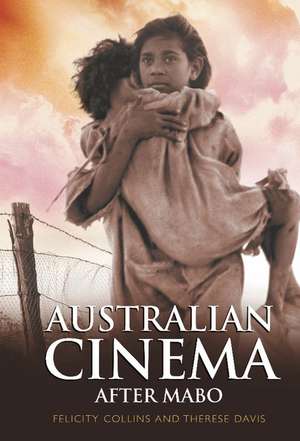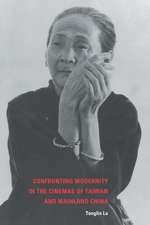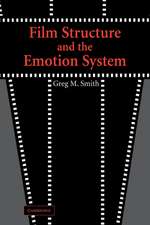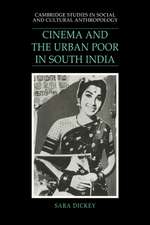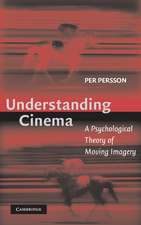Australian Cinema After Mabo
Autor Felicity Collins, Therese Davisen Limba Engleză Hardback – 26 oct 2004
| Toate formatele și edițiile | Preț | Express |
|---|---|---|
| Paperback (1) | 288.37 lei 6-8 săpt. | |
| Cambridge University Press – 26 oct 2004 | 288.37 lei 6-8 săpt. | |
| Hardback (1) | 517.85 lei 6-8 săpt. | |
| Cambridge University Press – 26 oct 2004 | 517.85 lei 6-8 săpt. |
Preț: 517.85 lei
Preț vechi: 581.86 lei
-11% Nou
Puncte Express: 777
Preț estimativ în valută:
99.09€ • 103.72$ • 82.47£
99.09€ • 103.72$ • 82.47£
Carte tipărită la comandă
Livrare economică 31 martie-14 aprilie
Preluare comenzi: 021 569.72.76
Specificații
ISBN-13: 9780521834803
ISBN-10: 0521834805
Pagini: 214
Ilustrații: 12 b/w illus.
Dimensiuni: 152 x 229 x 13 mm
Greutate: 0.44 kg
Editura: Cambridge University Press
Colecția Cambridge University Press
Locul publicării:Melbourne, Australia
ISBN-10: 0521834805
Pagini: 214
Ilustrații: 12 b/w illus.
Dimensiuni: 152 x 229 x 13 mm
Greutate: 0.44 kg
Editura: Cambridge University Press
Colecția Cambridge University Press
Locul publicării:Melbourne, Australia
Cuprins
Part I. Australian Cinema and the History Wars: 1. Backtracking after Mabo; 2. Home and abroad in Moulin Rouge, The Dish and Lantana; 3. Elites and battlers in Australian Rules and Walking on Water; 4. Mediating memory in Mabo - life of an Island Man; Part II. Landscape and belonging after Mabo: 5. Aftershock and the desert landscape in Heaven's Burning, The Last Days of Chez Nous, Holy Smoke, Serenades, Yolngu Boy, The Missing; 6. Coming from the country in Heartland, Cunnamulla and Message from Moree; 7. Coming from the the city in The Castle, Vacant Possession, Strange Planet and Radiance; Part III. Grief, Trauma and Coming of Age: 8. Lost, stolen and found in Rabbit-Proof Fence; 9. Escaping history and shame in Looking for Alibrandi, Head On and Beneath Clouds; 10. Sustaining grief in Japanese Story and Dreaming in Motion.
Recenzii
'The authors offer a compelling argument about the development of Australian cinema in the wake of the High Court's 1993 Mabo judgement, which overturned the founding principle of terra nullius - the myth that Australia was 'empty' prior to European settlement/invasion. This belated realization, Collins and Davis argue, opened a completely new chapter in the country's national cinema. The late 1990s and early 2000s have seen Australian film-makers respond by reflecting critically upon Australia's unresolved historical 'trauma' and restaging the country's colonial history … the book is strong in addressing films directly responsive to the crumbling myth of terra nullius … it … offers an excellent, much-needed sophisticated contribution to contemporary political, historical and cinematic debates around Australian national identity, while evidencing the continuing weight and relevance of film as a culturally engaged form.' Year's Work in Critical and Cultural Theory
Descriere
Australian Cinema after Mabo is a comprehensive 2005 study of Australian national cinema in the 1990s.
